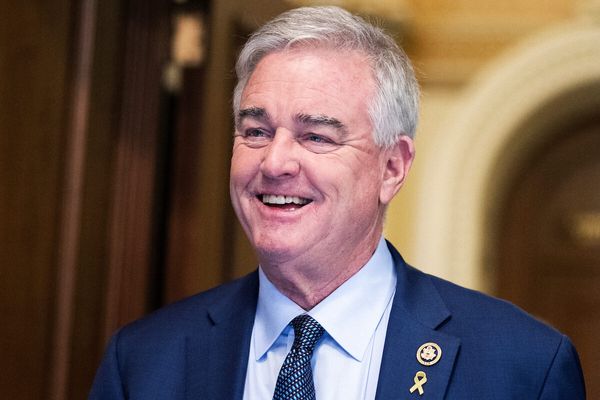As The Independent has reported, the deal is not yet “over the line”. The hope on Sir Keir Starmer’s side is that the pomp and sense of occasion of a state visit will put pressure on Emmanuel Macron, the French president, to sign the historic agreement for a “one in, one out” exchange to tackle the small boats crisis.
That has been the British government’s hope on previous occasions, notably when Rishi Sunak, Sir Keir’s predecessor, visited Paris two years ago. Each time a deal has seemed close, but each time Mr Macron has shied away.
The outline of the potential deal is known, and has not been denied by either side. The idea is that France will allow Britain to return migrants who cross the Channel by small boat, and that Britain will take an equal number of people whose application for asylum in the UK has been accepted at processing centres in France.
The beauty of this scheme, if it worked, would be that small-boat crossings would fall to nearly zero. If migrants realised that their prospects of staying in the UK were negligible, because they would be taken back to continental Europe, the number attempting the crossing would soon be negligible, too. That would mean that the UK’s obligation to take genuine refugees from French processing centres would also involve minimal numbers.
Unfortunately, the plan is unlikely to be so simple in practice. Any migrant put on a boat back to France could challenge their deportation in UK law. An entirely new fast-track tribunal system would have to be set up in parallel to the existing courts. There would, meanwhile, be disputes about the order in which asylum applications were processed in France.
But the main obstacle to the scheme remains political. Mr Macron presumably fears that French public opinion would regard agreeing a special deal for the British as a sign of weakness. Even if the scheme were seen as solving a mutual problem – and it offers the French the prospect of clearing the tent city around Calais – it might mean that more migrants overall claimed asylum in France. Already 160,000 people a year do so there, compared with 110,000 a year in Britain.
French opinion might legitimately ask why Mr Macron should solve Britain’s problem without solving France’s own. To which Sir Keir is believed to argue that Britain is willing to be part of a wider solution to the problem of undocumented migration across Europe, and that solving a specific problem in the Channel might result in a model that could be applied to other pressure points for migrant flow.
In doing so, Sir Keir is taking risks with his own domestic opinion, given that there are many people who would regard any cooperation with the European Union on matters to do with immigration as the equivalent of an attempt to reverse the result of the 2016 referendum.
That is why it is important to the British government that the existing agreement with the French, by which we pay them to police their beaches, is seen as the basis for further cooperation. And that is why the footage of French gendarmes slashing dinghies with knives, to prevent crossings at source, was worth a thousand words to Sir Keir, suggesting that the French authorities are finally getting tough with the people-smugglers.
Yet any attempt to patrol 30 miles of coastline is never going to be wholly effective. A political solution such as the “one in, one out” deal offers the prospect of shutting down the Channel crossings altogether. It would free the British government to assume its fair share of responsibility in a Europe-wide fair asylum system.
Sir Keir has shown that he can get results in international negotiations with Donald Trump, Narendra Modi, and Ursula von der Leyen. Mr Macron is his next big test.







